1 Art
Back in my day, kids who solemnly swore they were up to no good might be found in some unsuspecting homeowner’s yard “TPing” the trees — tossing rolls of toilet paper until the trees were fully decorated in festive strips of white (or occasionally a fashionable peach color or floral print). Artist Yuken Teruya takes toilet papering trees to a new — and exquisite — level with his cut paper art repurposing paper bags and toilet tissue rolls. Don’t miss his “Corner Forest” and other beautiful works. (Design Taxi, Yuken Teruya)
Of course, if the homeowner should happen to hear the giggling of mischievous pranksters and turn on the floodlights, said pranksters might take off running for their lives and ultimately need to use an ancient relic to find their way back home — a pay phone. These great pieces in Manhattan have been transformed into “time machines” to transport a caller via audio back to 1993 to hear one of a hundred and fifty stories “based on the ‘hood they’re calling from, told by a notable New Yorker.” If you’re in Manhattan before the end of May, be sure to take time to make a call. (Timeout New York)
2 News
We talk a fair bit around here about tea. Because, well, some of us drink an awful lot of it. But some of us drink coffee too. We recommend reading poetry with a cup of either one. NPR recently finished Coffee Week, a series of programs on Morning Edition featuring coffee culture, coffee buying, even a coffee quiz. The segment with Jerry Seinfeld on how his coffee habit began is as much fun as a four-shot latte with extra foam. (NPR)
I got married and I had a family and my entire day was not free for social interaction. And eating is annoying and difficult to arrange, [and it’s] hard to choose places. And meeting someone for coffee suddenly seemed like a wonderful, compact, accessible and portable social interaction.
You don’t even really need a place. But you feel like you’re doing something. That is what coffee is. And that is one of the geniuses of the new coffee culture.
I recently learned a new word: Cryptomnesia. It’s the bad thing that happens when a person forgets the source of an idea and mistakenly believes it is his or her own original thought. This can lead to plagiarism, though it may be unintentional. One of the hazards of reading a lot is that sometimes, even before I learned there was an actual name for this sort of thing, I lost a little sleep worrying I’d do it and not realize it. Perhaps Christian Ward would like to have used this term to explain away his behavior. But from this account of her experience at the hands of his pen, Sandra Beasley might say that’s not quite the right word. Be careful out there. It’ll take more than a stiff macchiato to fix this. (New York Times)
3 Publishing
Don’t really feel like reading anything more about the demise of print? That’s okay. You don’t have to. Now you can just watch the documentary Out of Print, coming to a theatre near you. Not that I expect it to come to the little movie theatre in my little town, but I, for one, will be checking the listings to see where I can watch, because the film — which features a bookstore owner, university professors, secondary educators, publishers, and some guy named Jeff Bezos — is narrated by Meryl Streep. I promised myself when I was 17 that I’d watch every movie she ever made. (Media Bistro, Out of Print)
After watching the documentary, maybe you still want to write a book. Book or e-book, you probably want to sell it, too. Even if you don’t self-publish, much of the weight of promoting and selling your book will fall onto your shoulders as an author. Kathleen Schmidt has very helpful article on what a publicist can (and can’t) do for you, as well as what to expect when you hire one. You will hire one, right? Because even with all the new technological developments in publishing, so far we haven’t run across any books with the kind of hops that make them jump off the shelves and into a buyer’s backpack. (VQR)
4 Poetry at Work
“Being a poet means finding a job that can support the writing of poems.” Well, yes. It’s long been known that there are no get-rich-quick schemes to be had in poetry. Most poets have to find their primary (or any) income from other work. NPR takes a look at some of the day jobs held by poets, from doctor to scientist to attorney. Monica Youn, an attorney, notes that “poetic techniques show up in law more often than one would think — repetition, cadence, metaphor. Just no one thinks of them as poetry.” (NPR)
5 Creativity
I live in a rural, remote area that is, happily, very quiet. The other day on a walk I stopped by a little marshy area and just listened to the sound coming from a small pond behind the reeds — it was nearly deafening. A friend tells me it was most likely frogs. This TED talk by Julian Treasure addresses how “the way things sound have a tangible, measurable effect on how we feel, how we heal, how we work and how we live.” He discusses noise and sounds that have a negative impact on our bodies and minds, and also the types of sounds that can do us good — specifically, the sounds from nature of wind, water, and birds. He didn’t mention frogs, but I think he’d be okay with that too. Oh, and he suggests music, too, as long as it is music “made with good intention, made with love.” (TED)
Now, technically, this device will actually add more sound to your environment. But think about it. One of the biggest sources of “noise” could easily be our digital devices. Even if the noise is silent. This music player is designed to help friends make the most of their time together by putting away their phones when they are together. For each phone that is plugged into the player, another layer of music is added, creating a richer musical sound. One might be tempted to call that music made with love. (GOOD)
6 Write-It
It is widely known that I can get lost just leaving my driveway. Fortunately, I live on a cul-de-sac. So reading a map to get out of writer’s block like this from the NY Book Editors might require that I hook up a GPS device. And even then, it might be questionable if I make it out in one piece. But perhaps it will help you. If not, give Siri a call, but don’t bother with one of those Manhattan phone booths. You’ll wind up lost, blocked, and stuck in 1993. (Jane Friedman, NY Book Editors)
This piece doesn’t belong in the Write-It category, but we don’t have a Read-It block. Besides, if you figured out the writer’s block map, then you’re ready for the Which Poem Should You Read flow chart. Thanks to our friends at Book Riot, this comes just in time to bid farewell to National Poetry Month, and perhaps will give you a little kick to keep reading into May. (Book Riot)
7 Poems
And you did know last month was National Poetry Month, right? In case you missed out on the fun, we had a couple of projects going on here at Tweetspeak all month long, including our book club discussion of Susan Goldsmith Wooldridge’s poemcrazy. Yesterday, we wrapped up our Phone Poets project with Patty Paine of Diode Poetry Journal with this great collection of your Instagram found poems, pinned all over the map from the Arabian Peninsula to South Carolina.
I get a certain feeling around 7:00 every morning when I open my Every Day Poem selection for the day and read it with my Monk’s Grenadine tea. I can’t explain it to you, really. You just have to read it to understand. Take this offering from L.L. Barkat, for instance:
in the grey birches,
Read the rest at Every Day Poems, and consider giving yourself the gift of a year of daily poetry with your morning coffee or tea.
8 People
Poet Maya Angelou turned 85 last month. In a recent interview at the NYT Sunday Review, Angelou talked about what she’s reading, what she’s listening to, and why she thinks chicken is “obedient.” She recalled reading and memorizing Poe as a teen:
I love Edgar Allan Poe. I didn’t speak for almost six years when I was a young girl, and so I memorized Poe. I thought “The Raven” and his other poems sounded pretty much like rap because of the internal rhyme. When I was about 14, I heard Gregory Peck read “The Raven, ” but he read it without syncopation. I said out loud, “That’s not the way that poem goes!” And the usher invited me out of the theater. (Sunday Review)
9 Books
Whenever poetry and Stephen Colbert collide, if it’s my week for our Top Ten Poetic Picks, you’re going to hear about it here. He recently interviewed Carolyn Kennedy about her new book, Poems to Learn By Heart, and the two quickly descended into a battle of memorized-poetry wits you won’t want to miss. (Coldfront)
The Colbert Report
Get More: Colbert Report Full Episodes, Indecision Political Humor, Video Archive
Sure, you think Pride and Prejudice was a brilliant novel. But did you think that Jane Austen was the “unacknowledged founder” of game theory? Fans of game theory and/or Jane Austen might want to get their hands on Michael Chwe’s new book, Jane Austen, Game Theorist. See if you don’t agree with Chwe that Austen was “a kind of Empire-waisted version of the mathematician and cold war thinker John von Neumann, ruthlessly breaking down the stratagems of 18th-century social warfare.” (New York Times)
10 Sound n Motion
Let me leave you with this clip of the passionate voice of Madonna paired with the passionate words of Pablo Neruda. Personally, I prefer to clear the video from the screen and just listen to the audio. If You Forget Me.
Enjoy.
Cover photo by John Tann. Creative Commons via Flickr. Article photos by Claire Burge. Used with permission. Post by Will Willingham.
______________________________
Buy a year of Every Day Poems, just $5.99 — Read a poem a day, become a better poet. In April we’re exploring the theme Swans, Swallows, Phoenix.
- Poems to Listen By: Yondering—7: When You Came Back - April 16, 2025
- Earth Song Poem Featured on The Slowdown!—Birds in Home Depot - February 7, 2023
- The Rapping in the Attic—Happy Holidays Fun Video! - December 21, 2022
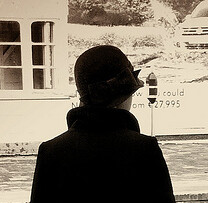
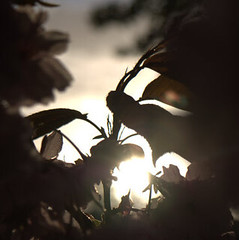
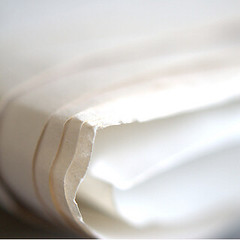

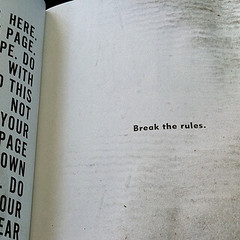
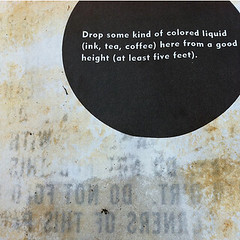





Maureen Doallas says
Quite a mix this week, from toilet paper to Neruda and Colbert in between. Caroline Kennedy holds her own; she always appears so poised. I like the reason she gave for memorizing poems.
L. L. Barkat says
Agreed on the Neruda/Madonna. That voice is just so wonderful.
Stuck in 1993? Shivers. I think not. No phone calls for me 😉
Jody Lee Collins says
I had the joy and pleasure of meeting Caroline Kennedy when she was in Seattle a few weeks ago and had her sign this beautiful book. Her stories about learning to recite poetry were a delight.
I wrote about it here 🙂
http://www.wordfacets.blogspot.com/2013/04/sweet-caroline.html